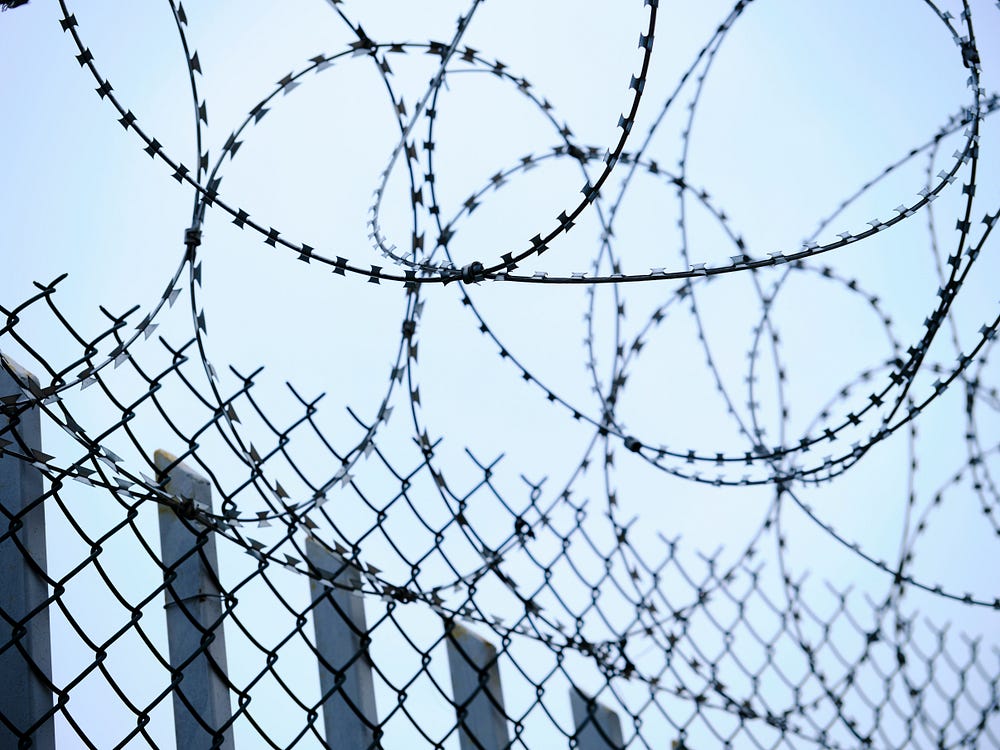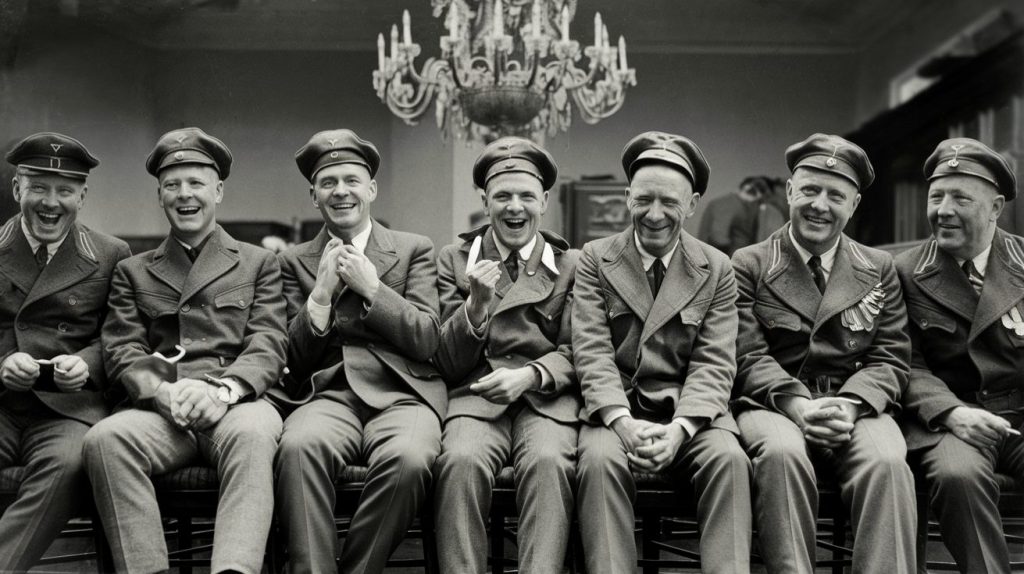The Nazi’s were one of the most evil forces on the planet. When they had the opportunity to deal with vulnerable people such as Jews, Homosexuals, Roma, Clergy, and Communists under Nazi Europe they responded by building over forty-four thousand concentration camps and internment sites and murdered over six million people. As World War Two began to turn in favor of the Allies; who were the United States, France, United Kingdom, Soviet Union, and others; and the scourge of the Nazis began to be removed from Europe, the thorny question remained, what do we do with the German Nazi prisoners of war?
The United States begun its experience of holding German prisoners of war or POWS due to a lack of space in Europe for such purposes. The POWS were brought back to America in the empty holds of cargo ships which had dropped their war supplies off in Europe. They were provided with an identification number in order to eventually return the prisoners in an orderly fashion, very unlike the German concentration camps which tattooed dehumanizing identification numbers upon their arms.
The Nazi POWS were housed in over five hundred camps throughout the United States. Due to concerns about their security risk many were originally imprisoned on military bases so that they could be easily monitored. The Nazi POWS, themselves however, did not seem very warlike in their captivity and were eventually often moved to lower security labor camps. Some POWS were monitored and interrogated by American intelligence agents, but it was normally only for a short time period and if they provided useful information, they were able to get additional rewards which were unavailable to other prisoners.
Nazi POWS were held under the auspices of the Geneva Convention and they were held in pleasant and safe conditions. The German POWS could be used to complete work duties for America with the restrictions that they could not be forced to do any dangerous work or anything that would support the war effort against their home country. Work details for the German POWS included farming, working in factories, and maintenance on their own camps which eased a labor shortage caused by the war. The POWS were given many of the comforts of home including a bed and bathing facilities and were given a courteous funeral if they passed on while in American captivity with some even deciding to drape their coffin in the Nazi flag. Some POWS were exposed to efforts at reeducation to change the Germans minds with courses which included anti-Japanese messaging, the values of democracy, and how to bring pro-democratic traditions back to Germany with differing levels of success.
One of the most galling issues for many African Americans was that the Nazi POWS could use the military dinning halls and eat with the rest of the American white soldiers while the African American troops were contained in the kitchen and out of the way areas according to the racist Jim Crow system. They were allowed to utilize rights and privileges such as using “whites only” bathroom facilities and water fountains even though they were in fact the enemy while loyal and fierce fighting African Americans troops were segregated away under a system of discrimination.
A second issue was discussion over what treatment German POWS would deserve, especially when reports were heard that American POWS had it much worse in German camps. The American government, however, after careful deliberation, decided that it was important for Americans to follow the human rights conventions regardless of how others behaved. Italian prisoners were given much greater rights and freedoms once Italy joined the Allies even though it caused consternation about intermixing between the nationalities. Japanese POWS were far less common due to their belief in battling to the death, but they received a basically equal treatment to the other European POWS, although there was a definite mood of Japanophobia nationwide as evidenced by the imprisonment of innocent Japanese Americans while there were no other belligerent nationalities that were so detained.
Prisoners were divided according to their ideological affiliation with hardcore Nazis receiving less benefits and regular German soldiers receiving more. German officers were not allowed to be forced to work, non-commissioned officers could only be used in a supervisory capacity, while enlisted men were able to be used for labor without restriction. Some German POWS remember being treated well and were able to use their money to buy products that were in short supply back in Germany prior to their capture such as cigarettes, soda, and ice cream.
Amazingly, after the German surrender in 1945 all German POWS were repatriated back to Germany by the end of 1946, a quite quick and fair turnaround. Many German POWS did not want to return to Germany, especially if they resided within the new Soviet dominated East Germany where they worried that they would be mistreated. Others wanted to remain in a country that was generally untouched by war while Germany was in ruins and would need considerable reconstruction to return to its pre-war status. The lingering labor shortage resulted in Americans to campaign to allow them to temporarily remain and work in America, but the nation ultimately stuck to the time ultimatum imposed by President Harry Truman.
America’s treatment of Nazi POWS reflects a larger conflict and tension between good and evil that was engulfing the entire nation at the time. America wanted to behave in an honorable fashion and uphold the parameters of the human rights conventions, but they became enraged and vengeful when viewing the ways other nations treated American POWS. They wanted to provide a decent quality of living to Nazi POWS, while they neglected to do so for innocent US citizens of Japanese descent in America.
The decision making process in a time of crisis retains parallels to today. Many Americans differed over the treatment of captured terrorists during the War On Terror with some believing that they should be afforded the rights of the Geneva Convention, while others wanted to see them imprisoned as enemy combatants without rights in the military base at Guantanamo Bay, Cuba. Other parallels are available in terms of debating the proper treatment of criminal inmates where issues like phone calls home, solitary confinement, and living conditions are actively considered. Some argue that harsh treatment leads to deterrence, but as crime and war have persisted throughout history that does not appear to be the case. It is most important, however, that America leans on the influences of its better angels and treats those in incarceration better than we may desire them to be treated because if we do not, we learn dangerously close to becoming the evil that we are fighting against.
Sources:
Nazi Camps
Nazi Germany and its allies established over 44,000 concentration camps and incarceration sites during the Holocaust…encyclopedia.ushmm.org
German POWs on the American Homefront
Thousands of World War II prisoners ended up in mills, farm fields and even dining rooms across the United Stateswww.smithsonianmag.com
‘Are We Not American Soldiers?’ When the U.S. Military Treated German POWs Better Than Black Troops
The preferential treatment of Nazi POWs told Black troops that they were fighting for a country even as that country…time.com
The Enemy in Colorado: German Prisoners of War, 1943-46
The Enemy in Colorado: German Prisoners of War, 1943-46 – Countless books, movies, and other media tell the tale of…www.historycolorado.org
Former German POW says, ‘Thank you, America’
A 91-year-old German man, who was a prisoner of war at JBLM during World War II made a nostalgic trip to thank the…www.army.mil
WWII POW Camps in the United States – Fold3 HQ
When the United States entered WWII in 1941, the United Kingdom was running short on prison space and asked the US for…blog.fold3.com
Prisoners of America
German prisoners of war arriving to work at Camp Patrick Henry, Virginia, 5 May 1944. U.S. Signal Army Photograph…uncommonwealth.virginiamemory.com
Prisoner of War Camps, United States
PRISONER OF WAR CAMPS, UNITED STATESIn both World Wars, despite questions about the validity of the respective Hague…www.encyclopedia.com
Passionate history teacher who loves reading, discussing, and sharing history with others






